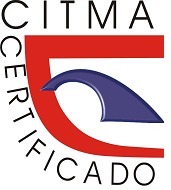OPEN DATA: A TECHNICAL DEFINITION FOR A KEY CONCEPT FOR THE DIGITAL TRANSFORMATION
Open data: technical definition of a key concept for Digital Transformation
Keywords:
datos abiertos; interoperabilidad; licencias de uso; política de datos; transformación digitalAbstract
Data has become the most valuable resource, being the raw material on which the most lucrative legal businesses are based, especially data about the activity of people, their tracks on the web and on the surface of the Earth. What we do on the web at any times and from any place.
Access to that Big GeoData is currently controlled by a few companies and to make possible a digital transformation of organizations in which there is equality of opportunities and an un-rarefied market, it is necessary that this galaxy of data were published in the form of open data, often open geographic data.
A large number of organizations and initiatives recommend the publication of open data in many initiatives. However, there is no universally accepted clear and precise definition of what open data exactly is, nor a set of technical requirements in order to have a checklist to verify and, if necessary, to certify that a dataset is being published as open data.
This article provides a conceptual and theoretical definition of open data and summarizes the content of the Spanish standard UNE 148004: 2019 that proposes a verifiable definition of open geographic data, extrapolated to other types of data. Finally, the need to define the concept of open services is raised, in the context of a Service Oriented Architecture based on the interoperability of systems and resources, and some conclusions are outlined.
References
Arthur, Ch. (23 de agosto de 2013). Tech giants may be huge, but nothing matches big data. The Guardian. Recuperado de https://bit.ly/2XoXw1K
Berners-Lee, T. (27 de julio de 2006). Linked Data. Recuperado en https://bit.ly/3emAnEd
Comisión Europea (23 de marzo de 2017). European Interoperability Framework –Implementation Strategy. Recuperado en https://bit.ly/3c635HI
Hernández, L. Nunes de Lima, V. y Smith, R. S. (19 de septiembre de 2018). Good practices for licenses – overcoming usage barriers for INSPIRE data. Recuperado de https://bit.ly/2TGWIo5
Herzog, T. (2 de noviembre de 2017). Five years of investments in open data. Recuperado de https://bit.ly/3enPgWG
ISO (2007). ISO 19131:2017 Geographic information – Data Product Specifications.
ISO (2013). ISO 19157:2013 Geographic information – Data quality.
ISO (2014). ISO 19115-1 Geographic information – Metadata. Part 1 Fundamentals.
Mention, Anne-Laure (ed.). (2019). Digital Innovation: Harnessing The Value Of Open Data. Singapur; World Scientific Publishing.
Ministerio de Fomento. (31 de marzo de 2008). Orden Ministerial FOM/956/2008 por la que se aprueba la política de difusión pública de la información geográfica generada por el Instituto Geográfico Nacional. Recuperado de https://bit.ly/3etzqKu
Ministerio de Fomento 2015. (18 de diciembre de 2015). Orden Ministerial FOM/2807/2015 por la que se aprueba la política de difusión pública de la información geográfica generada por el Instituto Geográfico Nacional. Recuperado de https://bit.ly/3c9jkUC
Naciones Unidas (24 de octubre de 2018). Declaración de Dubái. Recuperado de https://bit.ly/2yAWgAl
ODC. (29 de octubre de 2015). Open Data Charter. Recuperado de https://bit.ly/2ZGC6QM
Open Society Institute (2 de diciembre de 2001). Budapest Open Access Initiative. Recuperado de https://bit.ly/3d7RdGw
Open Knowledge Foundation. (2008). Open Software Service Definition. Recuperado en https://bit.ly/2XaKlTy
Open Knowledge Foundation. (2016). Definición de Conocimiento Abierto v2.1. Recuperado de
Open Knowledge Foundation. (2017). Global Open Data Index. Recuperado de https://bit.ly/3equfLh
PIRA (30 de octubre de 2000). Commercial Exploitation of Europe’s Public Sector Information. Final Report for the European Commision. Recuperado en https://bit.ly/3c7nj3U
Irving, F. (18 de julio de 2007). We need an Open Service Definition. Recuperado en https://bit.ly/2Bbja2f
Real Decreto 4/2010. (29 de enero de 2010). Esquema Nacional de Interoperabilidad. Recuperado en https://bit.ly/3dldqRu
Rodríguez, A.F. y Vivas, P. (19 de octubre de 2018). Informe del SGT de Políticas de Datos. Recuperado de https://bit.ly/2ZEmOMc
GT Política de Datos. (25 de octubre de 2019). Panorama y evolución de las políticas de datos en la IDEE. Reunión del GT IDEE en Cáceres. Recuperado en https://bit.ly/36CLki7
Singleton, D. A. et al. (5 de febrero de 2016). Establishing a Framework for Open Geographic Information science. Recuperado en https://bit.ly/3bZqQkJ
The Economist (6 de mayo de 2017). The world’s most valuable resource is no longer oil, but data. Recuperado de https://econ.st/3d3JnxT
UK Cabinet Office. (18 de junio de 2013). Open Data Charter. Recuperado de https://bit.ly/2X5PbkK
UNE (2005). UNE 66175:2003 Sistemas de gestión de la calidad. Guía para la implantación de sistemas de indicadores.
UNE (2018). UNE 148004:2018 Datos geográficos abiertos.
UNECE (1998). Convención sobre el acceso a la información, la participación del público en la toma de decisiones y el acceso a la justicia en asuntos ambientales. Recuperado en https://bit.ly/2TFwKRE
Unión Europea (31 de diciembre de 2003). Directiva 2003/98/CE relativa a la reutilización de la información del sector público. Recuperado en https://bit.ly/3goCI3k
Unión Europea (26 de junio de 2013). Directiva 2013/37/UE relativa a la reutilización de la información del sector público. Recuperado en https://bit.ly/36vop8w
Unión Europea (4 de mayo de 2016). Reglamento (UE) 2016/679 relativo a la protección de las personas físicas en lo que respecta al tratamiento de datos personales y a la libre circulación de esos datos. Recuperado de https://bit.ly/3c4AbYG
Unión Europea (20 de junio de 2019). Directiva (UE) 2019/1024 relativa a los datos abiertos y la reutilización de la información del sector público. Recuperado en https://bit.ly/2XxbiQ3
Valentino-De Vries et al. (10 de diciembre de 2018). Your Apps Know Where You Were Last Night, and They’re Not Keeping It Secret. Recuperado en https://nyti.ms/3gouN5U
W3C (World Wide Web Consortium). (Mayo de 2017). Open Data Barometer. Global Report 4th edition. Recuperado de https://bit.ly/2ZFedZO
Downloads
Published
How to Cite
Issue
Section
License
Copyright (c) 2020 Antonio F Rodríguez Pascual

This work is licensed under a Creative Commons Attribution-NonCommercial 4.0 International License.













